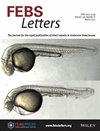树突状细胞引导淋巴结中抗原和白细胞的流动。
IF 3.5
4区 生物学
Q1 Biochemistry, Genetics and Molecular Biology
引用次数: 0
摘要
树突状细胞(DC)具有吸收抗原并将其呈现给 T 细胞的能力,因此在启动和形成适应性免疫反应方面发挥着核心作用。一旦进入淋巴结(LN),DCs 就能将抗原传播给其他 DCs,从而扩大能激活特定 T 细胞克隆的细胞池。此外,DC 还能通过增加幼稚 T 细胞的停留时间来调节其他免疫细胞的动态,从而促进对同源抗原的扫描,并选择性地招募其他白细胞。在这里,我们将讨论直流电在协调 LN 内抗原和白细胞迁移中的作用,以及这种迁移对 T 细胞活化和效应功能承诺的影响。本文章由计算机程序翻译,如有差异,请以英文原文为准。
Dendritic cells steering antigen and leukocyte traffic in lymph nodes.
Dendritic cells (DCs) play a central role in initiating and shaping the adaptive immune response, thanks to their ability to uptake antigens and present them to T cells. Once in the lymph node (LN), DCs can spread the antigen to other DCs, expanding the pool of cells capable of activating specific T-cell clones. Additionally, DCs can modulate the dynamics of other immune cells, by increasing naïve T-cell dwell time, thereby facilitating the scanning for cognate antigens, and by selectively recruiting other leukocytes. Here we discuss the role of DCs in orchestrating antigen and leukocyte trafficking within the LN, together with the implications of this trafficking on T-cell activation and commitment to effector function.
求助全文
通过发布文献求助,成功后即可免费获取论文全文。
去求助
来源期刊

FEBS Letters
生物-生化与分子生物学
CiteScore
7.00
自引率
2.90%
发文量
303
审稿时长
1.0 months
期刊介绍:
FEBS Letters is one of the world''s leading journals in molecular biology and is renowned both for its quality of content and speed of production. Bringing together the most important developments in the molecular biosciences, FEBS Letters provides an international forum for Minireviews, Research Letters and Hypotheses that merit urgent publication.
 求助内容:
求助内容: 应助结果提醒方式:
应助结果提醒方式:


